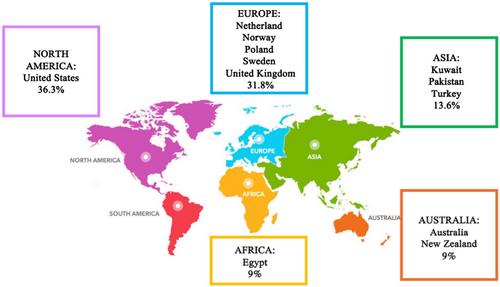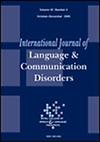Parental communication dynamics with children who stutter: A scoping review
Abstract
Background
Parents of children who stutter (CWS) are often uncertain, hesitant and uncomfortable to communicate openly with their CWS and other people on the topic of the stutter and disclosing the stutter to the child and/or other people.
Aims
To map and understand the dynamics involved when parents communicate with their CWS and other people on the topic of their child's stuttering and disclosure of the stutter to the child and/or other people.
Methods
This scoping review was conducted in accordance with Joanna Briggs Institute methodology. The following platforms and search engines were identified and searched: Google Scholar, PubMed, ProQuest Databases and EBSCOhost: Academic Search Premier, Africa-Wide Information, CINAHL (Cumulative Index to Nursing and Allied Health Literature), ERIC (Educational Resources Information Center), Health Source Nursing/Academic Edition and MEDLINE. The search was limited to studies pertaining to parents of CWS, instead of people who stutter. The first two authors screened titles and abstracts of identified records, and thereafter, full-text screening was conducted of the selected articles as well as the reference lists.
Results
The scoping review yielded 14 records that included data from 12 different countries representing five continents. The 14 records comprised one systematic review, four expert opinions, two studies with mixed methods, five with qualitative designs and two with quantitative designs. The review content provided information about the nature, advantages and disadvantages of open communication and disclosure as well as reasons why parents of CWS are reluctant or willing to communicate in an open way.
Conclusions
There is limited information available about parental communication with CWS on the topic of their stuttering and disclosure of the child's stuttering to the child and/other people. The complexity of communication dynamics between CWS and their parents requires further in-depth research.
Contribution
This study highlights the lack of empirical evidence about disclosure and the dynamics of open communication between parents and their CWS and the need for research to gain insight into this topic.
WHAT THIS PAPER ADDS
What is already known on the subject
- Parents of CWS are often uncertain, hesitant and uncomfortable to communicate openly with their CWS and other people on the topic of the stutter and disclosing the stutter to the child and/or other people. Despite the important and indispensable role parents play in the life of their CWS, little information is available regarding the way in which parents communicate about stuttering with their CWS, and how they accomplish the process of stuttering disclosure.
What this study adds
- This scoping review confirms that limited information is available regarding the process of parental communication with CWS and disclosure of the stutter. This study forms a basis for planning further research as it assessed the current state of knowledge on the issue.
What are the clinical implications of this work?
- The results of this study have future potential in helping parents of CWS to understand the processes involved related to parental communication with CWS and disclosure of the stutter. Further research regarding this issue is encouraged.


 求助内容:
求助内容: 应助结果提醒方式:
应助结果提醒方式:


